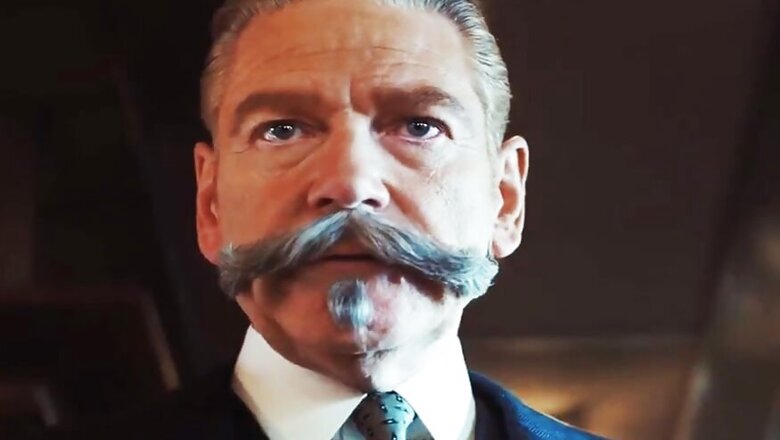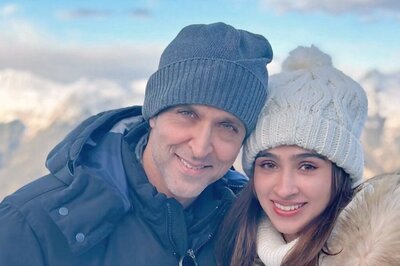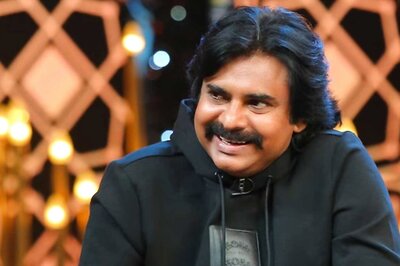
views
Hercule Poirot with a full head of hair? Despite Murder on The Orient Express having a most promising trailer and featuring a truly enviable cast, this was the one crumpled rosebud in a garden of seeming cinematic Paradise. Kenneth Branagh is a brilliant actor and director, but him playing the Belgian detective with a full head of hair seemed terribly against the grain. His egg-headed baldness is one of the most defining traits of Agatha Christie's most beloved character, apart from his formidable moustache and his penchant for playing the "mountebank". Having found my first love in the whodunit genre, of which Christie is the unopposed queen, changing such a key element of arguably her greatest creation seemed like sacrilege. Luckily, all fears and resentments are unfounded.
Kenneth Branagh IS Hercule Poirot in his cinematic adaptation of Christie's second most celebrated novel (And Then There Were None being her most popular book, having sold more than a 100 million copies) and perhaps the finest example of the locked room murder mystery trope. The actor slips into those iconic patent leather shoes as if he wears them every day, and delivers a nuanced, intimate performance as the little detective who solved A Mysterious Affair at Styles, The Murder of Roger Ackroyd and so many other remarkable feats of deduction.
But as the King of Hearts said, "Let's begin at the beginning". Hercule (pronounced Air-Kewl, not Hercules) Poirot, who has come to Jerusalem at the request of the British Empire to find the thief of an important relic, solves the case with his customary panache and pomposity and decides to treat himself to a vacation in Istanbul, where he plans to immerse himself in Dickens' literature. Fate and the MacGuffin intervene to dash his plans and the detective is summoned back to London for a case of national significance. The luxurious Wagon-Lits-operated Orient Express that transects Europe and Asia Minor over a three day train journey is unusually booked out (it's the dead of winter), but Poirot's chance meeting with an old friend Monsieur Bouc (Tom Bateman), now a company director of Wagon-Lits, ensures him a berth on the transcontinental train.
Poirot finds himself sharing his compartment with the young American dipsomaniac, Hector MacQueen (Josh Gad), secretary to his decidedly unpleasant countryman Mr Edward Ratchett (Johnny Depp), who is also accompanied by his English valet Edward Masterman (Derek Jacobi). The other passengers in the coach are English governess Mary Debenham (Daisy Ridley) and the colored English Doctor Arbuthnot (Leslie Odom Jr.), Russian princess Dragomiroff (Judi Dench) and her Swiss attendant Hildegard Schmidt (Olivia Colman), Italian-American car dealer Biniamino Marquez (Manuel Garcia-Rulfo), Spanish nun Pilar Estravados (Penelope Cruz), Slavic nobles Count and Countess Andreyni (Sergei Polunin and Lucy Boynton), Austrian scientist Gerhard Hatmann (Willem Dafoe), and last but not least, the American divorcee Mrs Hubbard (Michelle Pfeiffer). The French conductor Pierre Michel (Marwan Kenzari) completes the full list of occupants in the First Class coach of the Orient Express, which is sealed off from the rest of the train after dinner service every night.
These operational minutiae turn out be of the greatest importance after Ratchett is found murdered by multiple stab wounds on the second morning; especially since the night preceding the discovery of the crime, the train runs into a snow bank and grinds to a halt while traversing the Alps. A distraught Bouc (who was in another coach) turns to Poirot to solve the crime before they are rescued and arrive at the next station on the route. Given the irregular and corrupt policing in central Europe at the time (the film being set between the two World Wars), Bouc is worried of a miscarriage of justice due to the presence of a Latin as well as black passenger on the train; more importantly, he doesn’t want a drawn-out scandal to blemish the peerless reputation of the Orient Express. And the investigation begins.
We shan’t delve further into the plot so as to not reveal any spoiler; let’s instead look at the filmmaking – it’s quite the spectacle. Branagh makes full use of the iconic locations the story takes place in with his Director of Photography creating a stunningly immersive experience through spectacular cinematography. Scenes and sequences seamlessly flit between various camera set-ups and frames; the actual site of the murder and movements between the different coach compartments is shot from above to ensure the audience is privy to every clue or lack thereof The rest of the film transitions between single and multiple camera set-ups, so as to provide either a wealth of detail or closer scrutiny of expressions and emotions.
The script also makes allowances for modern sensibilities by tweaking characters and certain plot elements but also preserves life in the US and Europe as it was between the two great wars. The casual racism that was the norm of the time is highlighted without becoming self-righteous, while the film also gracefully underlines the tensions from WW-I that led to WW-II (the reinterpretation of Dafoe's character as a precursor to the evil Nazi scientist-type is especially entertaining). Other alterations include Bouc being portrayed as a debauched young man in the film as opposed to the fussy executive from the book and the conflation of two characters into Colonel slash Dr. Arbuthnot, a former army office and current physician. The conversion of the Italian Foscarelli into the Hispanic Marquez (especially given his 'Italian' mannerisms) is also a bit perplexing.
The performances are exquisite; there’s no other word for it. If Michelle Pfeifer continues her spectacular comeback even as Daisy Ridley proves she’s so much more than another Star Wars character. Judi Dench is, as expected, sublime whether it’s her accent or her White Russian imperiousness while Johnny Depp sheds his Jack Sparrow-persona to gleefully immerse himself into the crass and unwholesome character of Ratchett, who is the murdered on the Orient Express. Alas then that most of the cast is restricted to individual vignettes rather than rounded characters. While every player performs admirably, ultimately they are mere plot-drivers to the story and for the exploration of Poirot himself.
Because this film is undoubtedly all about Poirot, serving perhaps, and hopefully, as a springboard to a future franchise. Branagh captures all of Poirot’s eccentricities to the minutest detail, from the detective’s perfectionism (subtly, and accurately, portrayed as OCD) to his sense of self-importance and mania for order. “I can only see the world as it is meant to be. While this is a curse, it also gives an advantage in the detection of crime," to paraphrase an observation by Poirot while answering the reason behind his incredible success in criminology. Branagh also indulges himself with the best lines and scenes in the film: you are either chuckling at his peculiarities and almost slapstick humor or marveling at his intellect or reeling from his somber observations on humanity and sense of pathos. But then, that’s how Poirot is: a phenomenal observer and thinker, burdened by a sense of his own importance.
At the end of the day, you read or watch a mystery/suspense thriller for the relatability of its protagonist investigator, not for a crime retold a hundred time over. Given that the film ends with Poirot being summoned to Egypt to solve a Death on The Nile (thereby sticking to the chronology of the books), this is a franchise that we’ll continue to watch.
Rating: ****



















Comments
0 comment